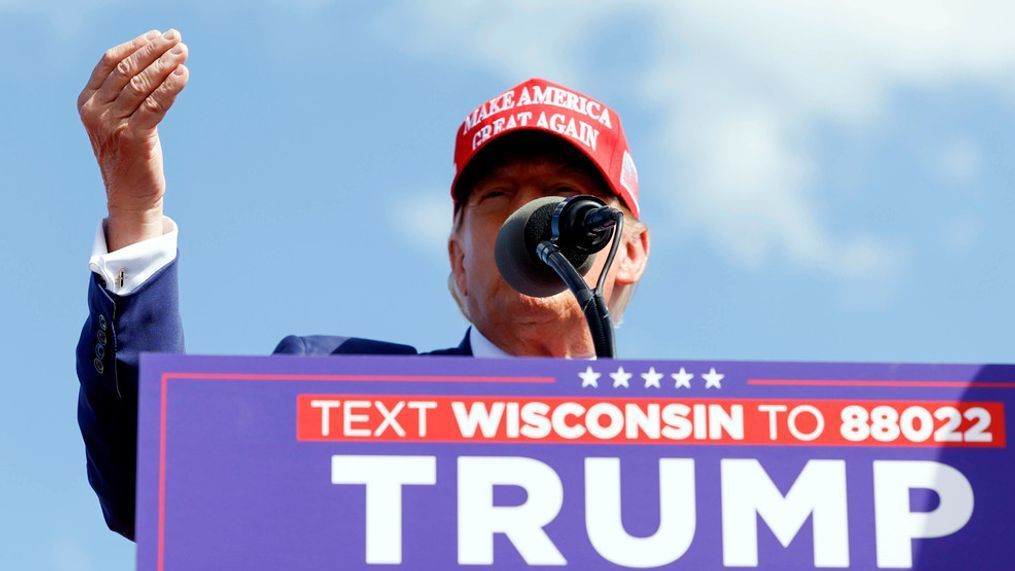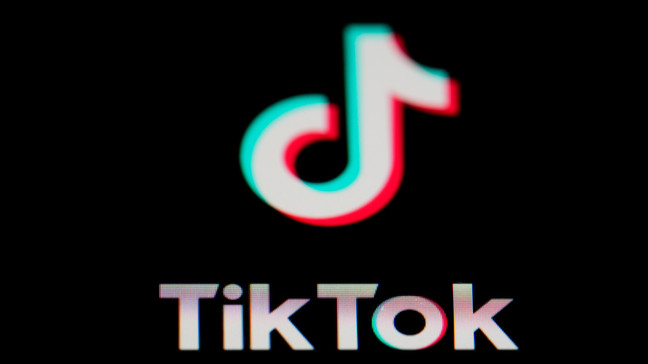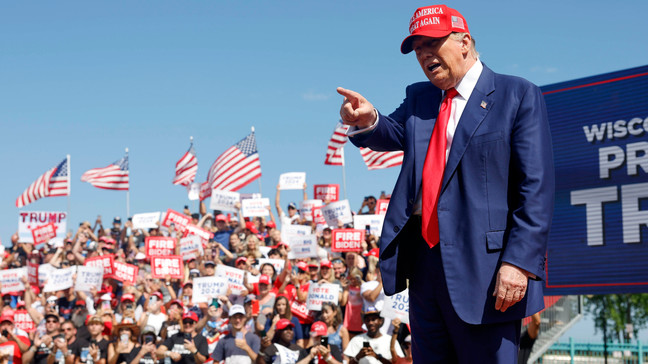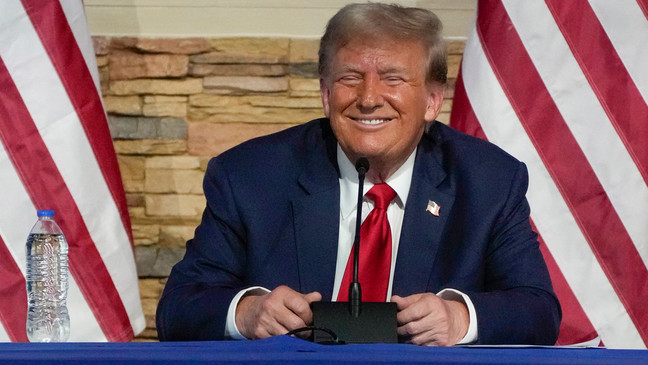How Trump's 2024 campaign differs from his successful 2016 White House bid
HUNT VALLEY, Md. (TND) — Former President Donald Trump railed against corporations and blasted what he said was their alliance with Washington, D.C, during his successful run for president in 2016. His White House bid this year looks a lot different.
Biden and Trump are effectively tied five months before the election, according to a new NPR poll. The survey comes as the president's approval rating continues to hover around the upper 30s and low 40s, something analysts chalk up to high inflation and concern about Biden's handling of the economy and immigration.
Inflation has slowed to a more manageable 3.27% from near double-digit levels two years ago thanks in part to higher interest rates, which have themselves weighed down on Biden's record. But prices are not the only difference between now and eight years ago, nor is the pandemic, which is now ebbing since 2020.
Trump has changed some of his targets and toned down the rhetoric against big business.
Before the 2016 election, the former president feuded constantly with big businesses and corporations while on the campaign trail, doing the same against what he called the establishment. Trump blasted Amazon CEO Jeff Bezos during his campaign for what he said at the time was dodging income taxes.
"Amazon is getting away with murder tax-wise,” he said. “He's using the Washington Post for power so that the politicians in Washington don't tax Amazon like they should be taxed."
Trump claimed at the time that Bezos was worried an incoming Trump administration would target his company with an antitrust lawsuit. The former president went after AT&T as well, railing against the telecommunications company's then-plan to purchase Time Warner, claiming the deal would concentrate too much power in too few hands.
His populist message at the time linked shuttered factories in the Midwest and Rust Belt with Wall Street and Washington, D.C. In addition to lamenting the flight of jobs out of the U.S., Trump also blasted free trade orthodoxy whenever possible and pushed for higher tariffs on Chinese exports, and for an overall more protectionist economic policy.
Many analysts at the time believed Trump's message created a stark contrast with his then-Democratic opponent Hillary Clinton, who he described as part of an establishment that cared little about the concerns of most blue-collar American workers.
He has shifted his position in some cases.
During the 2016 campaign and while in office, Trump was aggressively anti-China, at one point issuing an executive order banning video-streaming app TikTok. He reversed himself earlier this year, promising recently that his administration would "never ban TikTok."
The about-face came after Trumpmetwith Republican megadonor Jeff Yass, a billionaire who owns a stake in the Beijing-backed platform. Since then, his campaign created an account on the app, which is due to be banned in January.
Congress passed a ban, which received bipartisan support at the time. Biden signed it into law.
Supporters believe China is capable of using TikTok as a way of collecting personal data on Americans and manipulating public opinion. A ban is also part of an effort to pressure Chinese-based owner ByteDance to sell the platform.
The former president is still dealing with piles of legal bills as he fends off federal criminal indictments. His hush money trial in New York ultimately led to a conviction, which his legal team is planning to appeal.
Along with flipping on TikTok, Trump has also evolved on cryptocurrencies. He once said Bitcoin "seems like a scam," and has in the past been very critical of Silicon Valley companies. He has since made pledges to peel back regulations impacting the fledgling industry.
Some political pundits have noticed the subtle change. He no longer rails against big business, according to Matt Stoller,research director at the American Economic Liberties Project.
"Trump sounds like he is the coalition leader of the Republican establishment," Stoller wrote in a recent blog post. He added: "he’s mostly stopped challenging big corporations, except in cultural terms acceptable to Wall Street." In fact, Trump's now courting them.
Stoller pointed to Trump's economic agenda, which focuses mainly on promising more tariffs and extending his 2017 tax cuts. Trump also suggested reducing the corporate tax rate from the current 21% to 20%. Other Republicans are seeking a drop to 15%.
Another element of his 2024 campaign is the extent to which he's focused on using the Justice Department to attack his critics and former allies.
“I will appoint a real special prosecutor to go after the most corrupt president in the history of the United States of America, Joe Biden,” Trump said in June 2023 remarks. He also says his administration will "obliterate the Deep State.”
As for the main staple during his 2016 run -- immigration. It too has evolved.
Trump is taking a page out of Hillary Clinton's playbook. Like Clinton before him, he's now suggestingforeign-born college graduates should automatically be authorized to stay and work in the United States. He made the pitch in the podcast "All-In', which includes tech titans David Sachs as host.
"I think you should get automatically as part of your diploma a green card to be able to stay in this country,” Trump said in the interview. Previously, he's railed against what he calls the abuses in the country's visa programs.




